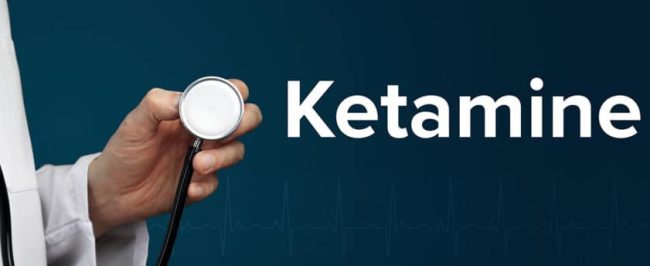Ketamine therapy is an alternative treatment option for certain mental health conditions. It has the potential to provide relief where other treatments have not been successful. Here is more information on ketamine therapy, its mechanism, the treatment process, and its applications for conditions like anxiety and depression:
What Is Ketamine Therapy?
Ketamine therapy involves the administration of ketamine in a controlled medical setting to address mental health disorders. Originally used as an anesthetic, ketamine is now applied in smaller doses for its therapeutic effects on the brain. The primary goal is to alleviate symptoms of persistent mental health conditions, particularly for individuals who have not responded to conventional treatments. It is administered by trained medical professionals who monitor the patient throughout the process.
How Does It Work?
Ketamine functions differently from traditional antidepressants. It targets the N-methyl-D-aspartate (NMDA) receptor in the brain, which plays a role in mood regulation and neural plasticity. By blocking this receptor, ketamine increases the levels of glutamate, a neurotransmitter that facilitates communication between brain cells.
The increase in glutamate activity leads to the formation of new neural pathways. This process can help the brain create new connections and adapt its response to stress and negative emotions. The rapid action of ketamine on these neural circuits may contribute to its fast-acting antidepressant effects.
What Does the Process Involve?
The process begins with a comprehensive evaluation to determine if a patient is a suitable candidate for ketamine therapy. This includes a review of the patient’s medical history, mental health background, and previous treatments. If approved, a personalized treatment plan is developed.
During a session, ketamine is typically administered intravenously (IV). The patient is monitored in a clinical environment by medical staff. Following the infusion, there is a recovery period where the patient is observed before being discharged.
A typical treatment course involves a series of infusions over several weeks. The frequency and number of sessions vary based on the individual’s response to the therapy. Maintenance sessions may be recommended to sustain the therapeutic benefits over time.
What Conditions Does It Treat?
Ketamine therapy is primarily used for treatment-resistant depression, a condition where patients do not respond to at least two different antidepressant medications. The application of this therapy has also been extended to other mental health conditions. It may help those with anxiety disorders, such as generalized anxiety disorder (GAD) and social anxiety disorder. Modulating brain circuits involved in fear and anxiety may help reduce symptoms in individuals who have not found relief with other therapies.
What Are the Benefits?
One of the main benefits of ketamine therapy is its rapid onset of action. Patients can experience a reduction in symptoms within hours or days of treatment. This may be valuable for individuals with severe, acute symptoms.
Another benefit is its effectiveness for patients who have not responded to other forms of treatment. For individuals with treatment-resistant depression, ketamine offers a new therapeutic pathway. It can provide relief where other options have failed, potentially improving a person’s overall quality of life.
Seek Professional Care Now
Ketamine therapy is a specialized treatment for certain mental health conditions, such as depression and anxiety. It operates through a unique mechanism that promotes the formation of new neural connections, offering rapid symptom relief. The process involves careful medical supervision, from initial evaluation through a series of structured treatment sessions. If you are exploring alternative treatments for a mental health condition, consult with a qualified medical professional to determine if this therapy is an appropriate option for you.
- Understanding the Link Between Behavioral Studies and Mental Health Support Services
- Key Characteristics That Support Long-Term Success in Nursing
- How Continued Nursing Education Supports Safer and More Effective Healthcare
- The Annual Health Checklist Every Senior Should Follow
- Top 5 Medical Weight Loss Clinics in Boise, Idaho








Leave a Reply